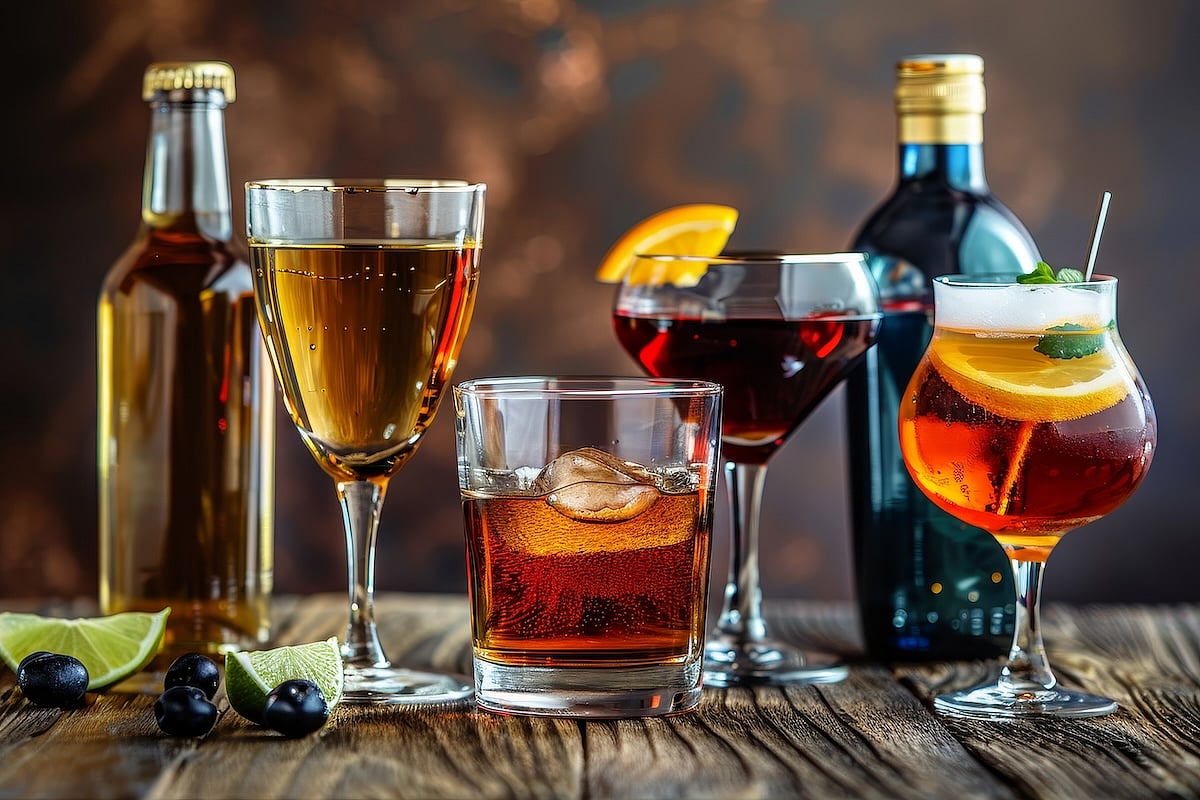Get Healthy!

- Dennis Thompson
- Posted November 13, 2024
Liquor, Wine, Beer: Which Comes With the Worst Lifestyle?
Bottoms up: The type of alcohol you prefer may say something about your lifestyle, new research reveals.
Beer drinkers are more likely to have an unhealthy lifestyle than folks who prefer wine or liquor, scientists report.
Beer drinkers have lower-quality diets, are less active and are more likely to smoke than those who drink wine, liquor or a combination, researchers found.
Those lifestyle factors can make a big difference in the health of people who are already drinking too much and risking getting liver disease, said lead researcher Dr. Madeline Novack.
“Alcohol overuse is the leading cause of [liver] cirrhosis in the U.S., and metabolic dysfunction-associated steatotic liver disease [MASLD] is rapidly increasing,” said Novack, chief resident of Tulane School of Medicine’s internal medicine residency program.
“Both types of liver disease often coexist, and lifestyle changes are key to managing and preventing these conditions, starting with understanding the link between alcohol use and poor nutrition,” Novack added in a Tulane news release.
For the study, researchers analyzed national survey data on more than 1,900 U.S. adults who drink alcohol. The respondents answered detailed questions on their eating habits.
About 39% said they only drink beer, 22% wine, 18% liquor and 21% a combination of alcohol types, researchers said.
None of the drinkers came close to achieving the 80-point score that’s considered an adequately healthy diet on the 100-point Healthy Eating Index.
Beer-only drinkers scored lowest at 49, wine drinkers at 55, and liquor and combination drinkers at nearly 53, researchers said.
Beer drinkers also reported the highest total daily caloric intake and the lowest level of physical activity.
The differences in diet could be due to which foods tend to be eaten with different types of alcohol, Novack said.
Beer tends to be served with low-fiber, high-carb foods containing processed meats. On the other hand, wine is often paired with meals that contain meat, vegetables and dairy, Novack said.
It also could be that different foods promote a person’s thirst for certain alcoholic beverages, Novack added. For example, fried or salty foods might create thirst for beer over wine or liquor.
The research is to be presented Wednesday at the upcoming annual meeting of the American Association for the Study of Liver Diseases, in San Diego.
Findings presented at medical meetings should be considered preliminary until published in a peer-reviewed journal.
More information
The Mayo Clinic has more on the effects of alcohol on the liver.
SOURCE: American Association for the Study of Liver Diseases, news release, Nov. 13, 2024

